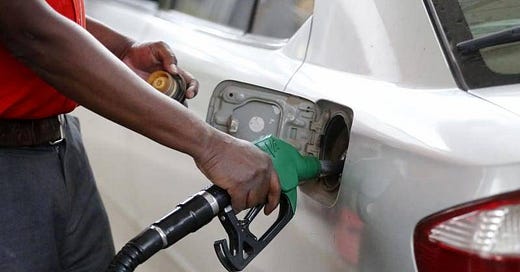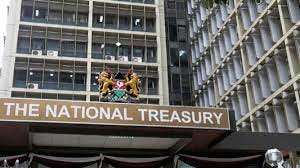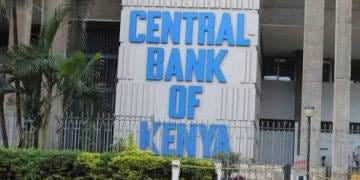President William Ruto Freezes Pay Increases for Senior State Officers, Proposes Salary Reviews for Civil Servants
President William Ruto announced a freeze on pay increases for senior State officers in response to proposals by the Salaries and Remuneration Commission (SRC) to mitigate the impact of the rising cost of living. The President stated on Friday that he had directed the SRC to suspend the proposed salary review until it determines whether it adheres to international best practices regarding income inequalities. Ruto emphasized the need to reduce the gap between the highest and lowest earners, stating that it is unfair for those at the top to earn more than 100 times the amount earned by those at the bottom.
Additionally, President Ruto disclosed that he has proposed salary reviews for civil servants, ranging from seven to ten percent, for the upcoming 2023/24 financial year. He stated that an agreement had been reached to adjust the salaries of civil servants starting from the following day. The move aims to address the financial needs of government employees in light of the challenging economic conditions and the increased cost of living. President Ruto's proposal seeks to strike a balance between the income of civil servants and the prevailing economic circumstances.
The decision to freeze pay increases for senior State officers and implement salary reviews for civil servants reflects President Ruto's commitment to addressing income disparities and ensuring equitable remuneration across different levels of the government workforce. The President's directive to the SRC to explore international best practices underscores the government's efforts to align its policies with global standards and promote fairness in income distribution. The proposed salary adjustments for civil servants indicate a recognition of the financial strain experienced by public sector employees and an attempt to alleviate their financial burdens.
Click here to read the full article
CAPITAL MARKETS
Kenya's Treasury Aims to Refinance Maturing Sovereign Debt with Eurobond Coupon Buyback
In a bid to refinance its maturing sovereign debt, Kenya's Treasury is seeking to repurchase Eurobond coupons at or below 11 percent. The move is aimed at addressing the looming maturity of Sh280 billion ($2 billion) in June of next year. The Treasury made this disclosure to the Public Debt and Privatisation Committee while emphasizing its intention to maintain par terms on rollovers for the new 2023-24 financial year.
The Treasury outlined its strategy, stating, "With regard to rollovers, it is assumed that concessional debt will be rolled over at existing terms with no assumption on new commercial debt in FY 2023-2024, and that the commercial international sovereign bond maturing in 2024 will be rolled over with a coupon of 11 percent based on the coupon of the Republic of Egypt's most recent issuance in March 2023."
These developments come in the wake of Kenya's efforts to tackle the significant maturity looming in the coming year. Last week, President William Ruto announced the country's plan to repurchase at least half of the bond from investors before the end of 2023. This move is seen as an attempt to alleviate the burden of a single bullet payment required to meet the maturity in June next year.
Click here to read the full article
ENERGY
1. Epra VAT review
The Energy and Petroleum Regulatory Authority (Epra) has announced an upward revision in pump prices following the recent increase in the value-added tax (VAT) on petroleum products. This move comes despite a court order issued on Friday that suspended the Finance Act of 2023. Effective from midnight, fuel prices are set to rise significantly, with petrol seeing an increase of Sh13.49 per litre, diesel rising by Sh12.39 per litre, and kerosene going up by Sh11.96 per litre.
Epra released the new prices minutes after the High Court suspended the implementation of the Act, days after President William Ruto assented to it, paving the way for the doubling of VAT on fuel from 8.0 percent effective July 1.
In Nairobi, motorists will now have to pay Sh195.53 for a litre of super petrol, while diesel prices will surge to Sh179.67. These price hikes mark the highest levels of fuel costs that Kenya has experienced since the introduction of pump price capping. The increase in VAT on petroleum products, combined with other factors such as global oil prices, is expected to put additional pressure on consumers who are already grappling with rising living costs. This development raises concerns about the potential impact on inflation and the overall economy, as fuel prices influence various sectors, including transportation and manufacturing.
Click here to read the full article
CBK Raises Key Benchmark Rate to 10.50%
The Central Bank of Kenya (CBK) has announced an increase in the benchmark base lending rate from 9.50% to 10.50%, signaling a monetary tightening stance by the new CBK Governor, Dr Kamau Thugge. This adjustment marks one of the Governor's initial actions as he assumes office and aims to address the challenges inherited from his predecessor, Dr Patrick Njoroge.
The decision to raise the Central Bank Rate (CBR) was reached during a meeting of the Monetary Policy Committee (MPC) held on Monday, preceding the July gathering. The MPC justified the move by considering various factors, including global uncertainties, inflationary pressures, weak global growth prospects, ongoing geopolitical conflicts, and the responses implemented worldwide to tackle these adverse conditions.
With this increase in the benchmark base lending rate, the CBK intends to curb inflationary pressures and stabilize the economy. The decision comes amidst a backdrop of global economic uncertainties, including the aftermath of the COVID-19 pandemic and its impact on the financial markets. By adopting a monetary tightening stance, the CBK aims to strike a balance between maintaining price stability and promoting sustainable economic growth.
The adjustment in the benchmark base lending rate will have implications for borrowers, particularly those with variable-rate loans. As the interest rates rise, borrowers may experience increased costs of borrowing, making loans less affordable. However, savers and depositors may benefit from higher interest rates, which could incentivize savings and promote financial stability in the long run.
Click here to read the full article
Contractors and suppliers of goods and services to the national government face a longer wait
Contractors and suppliers of goods and services to the Kenyan national government will have to endure an extended wait for over Sh537.2 billion in pending bills. This decision came after a Cabinet meeting chaired by President William Ruto on Tuesday, where the establishment of a special committee to audit the pending bills before any payments can be made was approved. The committee has been given a timeframe of up to one year to complete its assessment and present its findings.
According to a statement from the Cabinet, the pending bills verification committee has been assigned the task of auditing liabilities spanning from 2005 to 2022. Additionally, the committee will be responsible for proposing a mechanism to prevent the accumulation of future pending bills. It was agreed upon that the committee submit its final report within a year.
This move reflects a similar audit that was initiated by retired President Uhuru Kenyatta in 2019, specifically targeting pending bills within the counties. As a result, suppliers and contractors who provide goods and services to the government should brace themselves for a prolonged period of waiting before receiving their payments. The decision to carry out the audit indicates the government's commitment to addressing the issue of pending bills, but it also implies a significant delay for those awaiting their dues.
Click here to read the full article
WHAT YOU MIGHT HAVE MISSED
De La Rue spet Sh 2.7 billion to lay off its workers
De La Rue spent Sh2.7 billion to lay off staff, pay lawyers and write off its assets as it closes down operations at its Nairobi unit due to low currency and cheques printing business.
The multinational firm, which has been printing notes for Kenya through a local joint venture that is 40 percent owned by the Kenyan government, says in the latest trading update that it has now fully closed its notes printing line and is at the tail end of shutting down the cheques business.
The company, operating in Kenya as De La Rue Kenya EPZ Limited, had about 300 employees.
Diaspora remittances in Kenya experienced slow down
Diaspora remittances into Kenya have experienced a slowdown due to the economic challenges faced by Kenyans residing in the United States. These difficulties are partly attributed to the rising interest rates in the US. According to data from the Central Bank of Kenya (CBK), the inflows from Kenyans living and working abroad have fallen behind the previous year's figures on a year-to-date basis.
As of the end of May, diaspora remittances have contracted by 1.8 percent this year, amounting to Sh237.1 billion ($1.688 billion). In comparison, at the same stage last year, the remittances stood at Sh241.4 billion ($1.719 billion). The decline in remittances could be attributed to the economic hardships faced by Kenyans in the US, which may have reduced their capacity to send money back home. Additionally, the rising interest rates in the US might have deterred Kenyans from remitting larger sums of money due to increased costs associated with borrowing and investing.
Kenyan businesses facing a significant challenge in the form of email attacks
According to a recent report titled 'The Evolving Cyber Security Landscape in Africa 2022,' Kenyan businesses are facing a significant challenge in the form of email attacks. The study, conducted by technology firm Liquid C2, reveals that phishing and spamming attacks have emerged as the leading cybersecurity threat for local businesses. Out of the respondents who participated in the research, a staggering 68 percent identified email-based attacks as the most significant danger to their online existence.
The findings highlight the growing sophistication and prevalence of email attacks, which are increasingly targeting organizations in Kenya. Phishing attacks involve cybercriminals impersonating legitimate entities to trick individuals into sharing sensitive information such as passwords or financial details. Spamming, on the other hand, inundates users with unsolicited emails containing malicious links or attachments.






